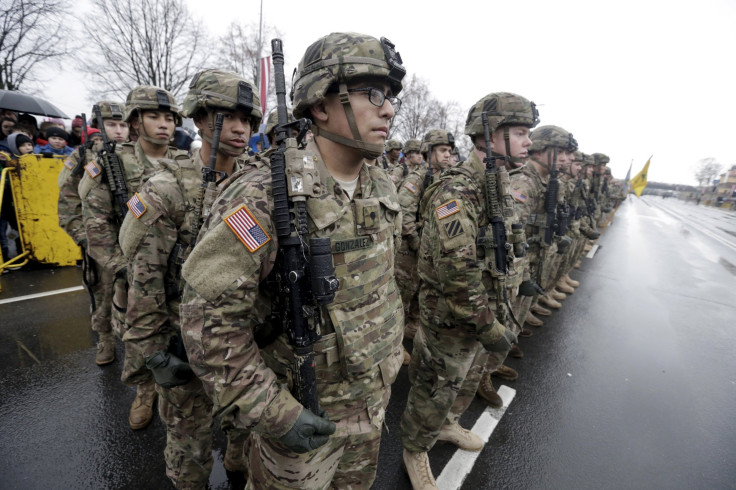More US Army Soldiers? Amid Russia, North Korea, ISIS Threats, House To Propose Increasing Troops

A House Armed Services Committee member plans to introduce legislation into Congress this year that will not only stop mass troop reductions in the army but call for an increase of up to 370,000 soldiers. Pointing to threats from Russia, North Korea and the Islamic State group, Rep. Chris Gibson, R-NY., told reporters Wednesday that his bipartisan bill would roll back military cuts by President Barack Obama's administration that he claims has made the world less safe.
“The assumptions have significantly changed,” Gibson told reporters Wednesday, according to a Defense News report. “Stay tuned, in the very near future we’re going to have some legislative action come forward, but we think it’s essential … that this drawdown needs to stop and that the next president make assessments of what the proper level of land forces should be.”
The proposed increase, which would revise the Army's end of 2018 bottom of 980,000 up to 1.35 million, slightly less than pre-9/11 levels, will likely upset fiscally minded representatives in the House that feel the U.S. military is capable of operating sufficiently without huge troop numbers or by spending large amounts on defense acquisition.
The announcement by Rep. Gibson comes just a day after the White House released its 2017 budget proposal, which for the Pentagon includes a $523.9 billion base budget and $58.8 billion wartime budget.
However, major changes to Army numbers now would cause complications for military planners, including a ripple effect on missions, recruiting, logistics and retention.
"We’ve tried to align our end strength and our force structure, so depending upon if there was some kind of a change of sizable magnitude, then we would probably be looking at our force structure and the decision we made there, as well,” Maj. Gen. Thomas Horlander, the Army budget director, told reporters Wednesday.
One of the main concerns expressed by military planners since defense cuts began taking place is that without sufficient troop numbers, a large fighting force would not be afforded a liberal rotation policy in and out of conflict zones, meaning longer deployments and possible battle fatigue.
© Copyright IBTimes 2025. All rights reserved.






















